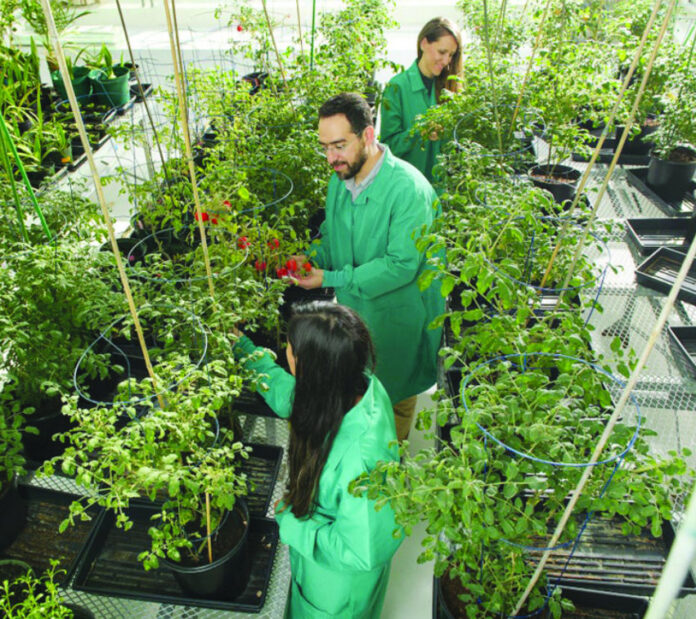RIYADH: Agriculture technology startup Red Sea Farms is planning to widen the scope of its greenhouse space in Saudi Arabia to 100 hectares in the next three years, said a top executive of the company.
Speaking to Arab News, Simon Roopchand, Red Sea Farms’ new global COO and regional CEO of the Middle East, said: “We have an expansion plan for the Kingdom that will take us to over 100 hectares of greenhouse space in the next three years.”
The company hopes to achieve 30 hectares of desert farm operations by the end of this year and has already started cultivating snack tomatoes and snack pepper in the Kingdom.
“Our objective is to expand the produce business to cater to the region’s market and ensure that we have the right quality of locally grown produce,” said Roopchand.
Red Sea Farms COO Simon Roopchand. (Supplied)
With the low supply of berries in the region, the company is currently experimenting with producing a wide range of locally grown berries in their greenhouses.
Ploughing on sunshine and sea water
Founded in 2018, Red Sea Farms grows fresh produce in enclosed and climate-controlled farms that largely depend on saltwater to cool greenhouses and irrigate crops.
The company uses sunlight and saltwater as base resources instead of relying on rainfall, fresh groundwater, or desalinated water.
Its innovative technology saves 300 liters of freshwater per kilogram of produce — an approach effective in areas where water is sparsely available and arable land is scarce.
“It’s all based on a sustainable food supply that we can deliver in a very sustainable way,” said Roopchand.
Red Sea Farms last month raised $18.5 million from Saudi Aramco’s Wa’ed, The Savola Group, King Abdullah University of Science and Technology Innovation Fund and OlsonUbben to expand its presence in the Gulf Cooperation Council region.
It will also use it to increase its fresh produce line and sell its technology to users in critically water-depleted regions. The company has also earmarked a global expansion plan that is expected to generate its first-generation product sales by the fourth quarter of 2022.
“We want to provide our technology to make it commercially viable for operators and farm growers to grow where it wasn’t possible before,” Roopchand said.
He added that the company aims to be a leading sustainable food business in the GCC, with their products currently being sold in the region.
“One of our challenges is keeping up with the demand. We can see that growing food security is a problem globally, and we are expanding quickly,” he added.
One reaps what one sows
The company has also partnered with The Red Sea Development Co. in the Kingdom as a leading supplier of sustainable fresh food. The ag-tech company will produce a diverse range of fresh leafy greens, herbs, vine crops, vegetables and fruits, including berries.
“We are partnering with TRSDC to produce vegetables and fruits for them sustainably. It’s a huge development,” said Roopchand.
The move assumes significance since The Red Sea Project will welcome 300,000 guests annually by 2023 and upwards of 14,000 employees, which could become a logistical bottleneck, especially in a remotely located and largely arid area.
On the research front, the University of Arizona College of Agriculture and Life Sciences’ Controlled Environment Agriculture Center is evaluating Red Sea Farms’ technology and its potential to produce crops in arid environments.
The university will integrate the company’s technology and study its adaptability for one year before deploying it across the US.
“We are a research-based company, so we won’t stop innovating. We want to feed the world sustainably. To do that, we need to keep reducing our requirements on fossil fuels, monitoring our carbon footprint, and ensuring that we can have local people in harsh environments growing quality crops,” Roopchand said.

